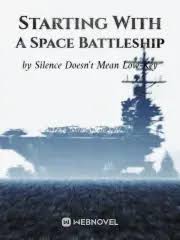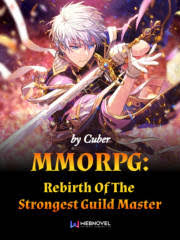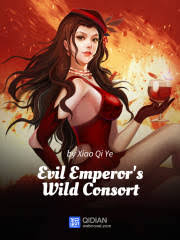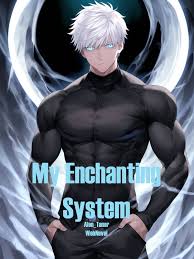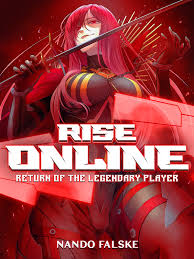The Story in 3 Sentences
Li Xiaonian dies betrayed by his girlfriend Yang Yue and is reborn into the past with a mysterious space battleship called “Shadow” that grants him the power of Memory Instillation, instantly mastering any skill with decades of simulated experience.
He re-enters the virtual reality game “Star Wind” before its global launch, leveraging his foresight and godlike abilities to accumulate wealth, technology, and influence far beyond normal players.
As his in-game dominance reshapes both digital and real-world economies, Li Xiaonian quietly builds a new life while confronting the same broken society that once crushed him—only this time, from a position of overwhelming power.
Why It Stands Out
1. A Cheat System That Feels Earned, Not Lazy
Unlike typical “god-tier” protagonists handed victory, Li Xiaonian’s Memory Instillation forces him to mentally endure years of simulated practice in seconds—his body doesn’t change, but his mind does, making his mastery feel psychologically taxing and strangely human despite the sci-fi premise.
2. The Game Is the World, and the World Is the Game
“Star Wind” isn’t just a backdrop; it’s a fully integrated economic and social layer over reality. The novel blurs lines between virtual achievement and real-world consequence, where owning a spaceship in-game translates to actual geopolitical leverage, echoing early xianxia cultivation logic but through a sci-fi MMO lens.
3. Quiet Revenge Without Screaming Vengeance
There’s no grand monologue about justice or bloody retribution. Li Xiaonian’s revenge is passive: he simply outgrows everyone who wronged him. His former girlfriend, corrupt officials, and scam artists become irrelevant specks as he ascends—making his emotional restraint more haunting than any rage-fueled climax.
Characters That Leave a Mark
There’s Yang Yue – the girlfriend whose betrayal costs Li Xiaonian his life, yet whose reappearance stirs not hatred but a quiet, aching recognition of how small she now seems in his reborn world.
The Flaws Fans Debate
The first 40 chapters are tightly written and engaging, but after that, the translation quality collapses into poorly edited machine-translated text with inconsistent names, broken grammar, and lost context.
Many readers criticize the protagonist’s unwavering moral stance despite enduring extreme injustice—his continued belief in human goodness feels unearned and psychologically implausible.
The story introduces high-stakes sci-fi concepts like soul transmigration via in-game death without ever explaining the rules, creating plot holes that undermine its internal logic.
Must-Experience Arcs
Ch. 1–15: Rebirth and the Shadow Awakening – Li Xiaonian returns to the past, activates the “Shadow” battleship, and uses Memory Instillation to master combat and engineering, laying the foundation for his rise in “Star Wind.”
Ch. 40–60: The S-Class Armor Revelation – After acquiring legendary-tier gear, Li Xiaonian’s hidden power is exposed, triggering panic among elites and exposing the fragility of the game’s economy and social hierarchy.
Ch. 580–613: Sovereign of the Stars – Now a de facto interstellar power, Li Xiaonian negotiates with real-world governments using his virtual assets, culminating in a quiet but total inversion of his original powerless existence.
Killer Quotes
“Memory Instillation doesn’t give you skill—it gives you the scars of a thousand failures you never lived.”
“You think betrayal is rare? No. Betrayal is the tax the weak pay to dream.”
Cultural Impact
Over 3 million readers engaged with the novel on Webnovel despite its controversial translation quality, showing strong appetite for sci-fi reincarnation hybrids.
Fans coined the phrase “Mama needs her spaceships” in reviews, turning it into a viral plea for better sci-fi representation in the platform’s catalog.
The “Chapter 40 Drop” became a meme among readers, symbolizing the moment a promising story collapses under poor localization—a cautionary tale cited in discussions about machine-translated web novels.
Final Verdict
Start Here If You Want:
A low-key, introspective take on the “reborn with cheat” trope where power is quiet, not loud.
A sci-fi MMO setting that actually impacts the real world, not just serves as a playground.
A protagonist who wins by becoming irrelevant to his enemies, not by destroying them.
Study If You Love:
Narratives that explore the psychological weight of simulated experience and accelerated learning.
The intersection of virtual economies and real-world class struggle in speculative fiction.
Stories where the “weak-to-strong” arc is measured in economic and intellectual capital, not just combat levels.
Avoid If You Prefer:
Tightly edited, professionally translated prose—post-chapter 40 text is widely regarded as unreadable by many fans.
Clear worldbuilding—neither the real world nor the game “Star Wind” is explained in depth, leaving readers to infer rules.
Morally complex protagonists—Li Xiaonian’s persistent idealism despite trauma feels inconsistent to critics.
